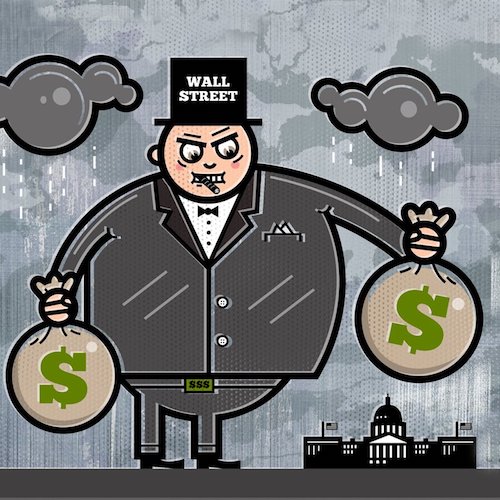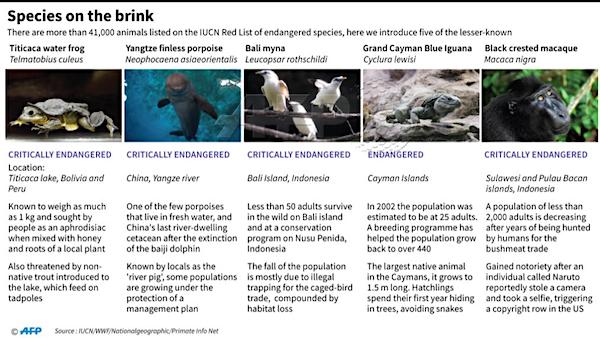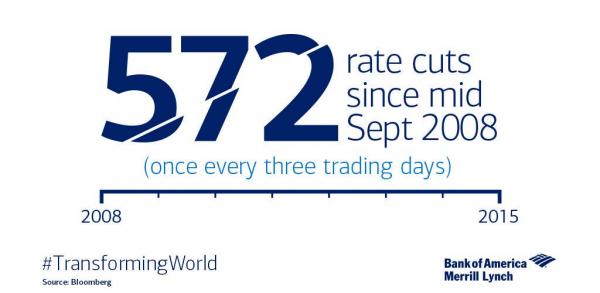
Gustave Courbet The desperate man (self portrait) 1852

The things we do for oil.
“‘Maduro had a plane on the tarmac and was ready to leave this morning’, claims @SecPompeo without offering evidence. But as Pompeo admitted just last week, telling lies was (and some may say still is) one of his key job requirements”.
• Maduro Claims Victory Over ‘Deranged’ Coup Attempt (G.)
Nicolás Maduro claimed his troops have thwarted a botched attempt to topple him masterminded by Venezuela’s “coup-mongering far right” and Donald Trump’s deranged imperialist “gang”. In an hour-long address to the nation on Tuesday night – his first since the pre-dawn uprising began – Maduro accused opposition leader Juan Guaidó and his political mentor Leopoldo López of seeking to spark an armed confrontation that might be used as a pretext for a foreign military intervention. However, “loyal and obedient” members of Venezuela’s Bolivarian armed forces had put down the mutiny within hours of it starting shortly after 4am, Maduro claimed, in direct contradiction to Guaidó’s earlier remark that the president no longer had military backing.
By noon there only remained a small group of plotters who had chosen “the path of betrayal … [and] handed their souls over to the coup-mongering far right”. “They failed in their plan. They failed in their call, because the people of Venezuela want peace,” Maduro said, surrounded by Venezuela’s military and political elite. “We will continue to emerge victorious … in the months and years ahead. I have no doubt about it.” Maduro said the plotters would “not go unpunished” and said they would face criminal prosecutions “for the serious crimes that have been committed against the constitution, the rule of law and the right to peace”.
[..] Maduro called Tuesday’s “coup-mongering adventure” part of a US-backed plot to destroy the Bolivarian revolution he inherited after Hugo Chávez’s death in 2013. “I truly believe … that the United States of America has never had a government as deranged as this one,” he said, calling Guaidó and his team “useful idiots” of the empire. He also scotched claims from the US secretary of state, Mike Pompeo, that he had been preparing to flee Venezuela for Cuba on Tuesday morning, until he was told to stay put by his Russian backers. “Señor Pompeo, please,” Maduro said.

Propaganda works.
• Zero Percent of Elite Commentators Oppose Regime Change in Venezuela (FAIR)
A FAIR survey of US opinion journalism on Venezuela found no voices in elite corporate media that opposed regime change in that country. Over a three-month period (1/15/19–4/15/19), zero opinion pieces in the New York Times and Washington Post took an anti–regime change or pro-Maduro/Chavista position. Not a single commentator on the big three Sunday morning talkshows or PBS NewsHour came out against President Nicolás Maduro stepping down from the Venezuelan government. Of the 76 total articles, opinion videos or TV commentator segments that centered on or gave more than passing attention to Venezuela, 54 (72 percent) expressed explicit support for the Maduro administration’s ouster.
Eleven (14 percent) were ambiguous, but were only classified as such for lack of explicit language. Reading between the lines, most of these were clearly also pro–regime change. Another 11 (14 percent) took no position, but many similarly offered ideological ammo for those in support. The Times published 22 pro–regime change commentaries, three ambiguous and five without a position. The Post also spared no space for the pro-Chavista camp: 22 of its articles expressed support for the end to Maduro’s administration, eight were ambiguous and four took no position. Of the 12 TV opinions surveyed, 10 were pro-regime change and two took no position.
[..] This comes despite the existence of millions of Venezuelans who support Maduro—who was democratically elected twice by the same electoral system that won Juan Guaidó his seat in the National Assembly—and oppose US/foreign intervention. FAIR (2/20/19) has pointed out corporate media’s willful erasure of vast improvements to Venezuelan life under Chavismo, particularly for the oppressed poor, black, indigenous and mestizo populations. FAIR has also noted the lack of discussion of US-imposed sanctions, which have killed at least 40,000 Venezuelans between 2017–18 alone, and continue to devastate the Venezuelan economy.

Mueller worried about media coverage.
“House Democrats, who have expressed distrust in the attorney general, are set to vote on Wednesday to allow House Judiciary Committee lawyers to question Barr at Thursday’s hearing.”
• About That Letter That Mueller Wrote To Barr… (ZH)
In what the WaPo breathlessly reports late on Tuesday was a rebuke and “complaint” to Attorney General William Barr, special counsel Robert Mueller sent a letter to the AG in late March, just days after Barr sent out his summary to Congress, in which Mueller stated that Barr’s 4-page summary to Congress on the sweeping Russia investigation failed to “fully capture the context, nature, and substance” of Mueller’s work and conclusions, citing a copy of the letter it had obtained using its trusted deep intel sources. Pouring more fuel on the fire, the always pithy Axios adds that “this revelation about Mueller’s dissatisfaction with the characterization of his report will likely escalate the growing rift over Barr’s handling of the special counsel’s investigation.
[..] Or maybe not, and perhaps the WaPo/NYT report is not “so bad” if one actually reads it, because once the breathless WaPo finally does come up for air, we get to paragraph 13 – a point by which most readers have turned out – to read the following real punchline in the WaPo report: “When Barr pressed Mueller on whether he thought Barr’s memo to Congress was inaccurate, Mueller said he did not…” So, Mueller felt there was confusion… but he did not think the memo was inaccurate. Wait, what’s going on here and how is this even a story? Well, if we read the rest of the above sentence, we find the true object of Mueller’s “complaint”: “[Mueller] felt that the media coverage of it was misinterpreting the investigation, officials said.”
Which means that, as the WaPo itself reports, what Mueller was really angry with was the coverage of his report by media such as… the WaPo and the NYT?? The irony, it burns. [..] throughout a subsequent 15 minutes telephone conversation between the special counsel and the attorney general, Mueller’s main worry was “that the public was not getting an accurate understanding of the obstruction investigation.” This goes back to what Mueller’s letter requested: “that Barr release the 448-page report’s introductions and executive summaries, and made some initial suggested redactions for doing so, according to Justice Department officials,” the WaPo writes. What happened then? A few weeks later Barr did just that..
[..] tomorrow Barr is scheduled to testify on Wednesday before the Senate Judiciary Committee about the investigation, and the entire article is meant to focus on the headlines of the WaPo (and NYT) article, and certainly not on paragraph 13 which, not only refutes the prevailing tone that Barr did something wrong, but in fact exonerates him. But that won’t have any impact on tomorrow’s hearing which is now assured to be a complete kangaroo court.

FISAgate. Get ready.
• The Real ‘Bombshells’ Are About to Hit Their Targets (Kelly)
In the next several weeks, Inspector General Michael Horowitz is expected to issue his summation of the potential abuse of the Foreign Intelligence Surveillance Act by top officials in the Obama Administration and holdovers in the early Trump Administration who were overseeing the investigation of Donald Trump’s presidential campaign. And the perpetrators of the so-called FISAgate scandal now are scrambling for cover as the bad news looms. Horowitz announced last March that his office would examine the Justice Department’s conduct “in applications filed with the U.S. Foreign Intelligence Surveillance Court (FISC) relating to a certain U.S. person.” That U.S. person is Trump campaign associate Carter Page.
In October 2016, just two weeks before the presidential election, the Justice Department submitted an application to the FISC seeking authorization to wiretap Page. The court filing accused Page, a Naval Academy graduate and unpaid campaign advisor, of being an agent of Russia. The application cited the infamous Steele dossier—unsubstantiated political propaganda that had been funded by the Hillary Clinton campaign and Democratic National Committee—as its primary source of evidence. But the specific political origin of the dossier intentionally was omitted in the court filing. (Robert Mueller similarly tap danced around the role of Fusion GPS, the political consulting firm that hired Christopher Steele to create the dossier. Mueller never mentioned the name “Fusion GPS” in the 448-page document, referring to it only vaguely as “the firm that produced the Steele reporting.”)
Former FBI Director James Comey and former Deputy Attorney General Sally Yates signed the original FISA application. It was renewed three times; subsequent signers included former acting FBI Director Andrew McCabe and Deputy Attorney General Rod Rosenstein. If there’s one document that represents the malevolence, chicanery and arrogance of the original Trump-Russia collusion fraudsters, it’s the Page FISA application. But—to borrow a favorite term of the collusion truthers—the “walls are closing in” on the FISA abusers.

Senator Rand Paul: “Subpoena Clapper & Brennan! Demand they answer whether they leaked classified information to the Washington Post. Examine their call records and lock them up if evidence proves them to be the leakers.”
• Why Are Clapper and Brennan Not in Jail?
The clearest of all the laws concerning U.S. intelligence is Section 798, 18 U.S. Code—widely known in the Intelligence Community as “the Comint Statute,” or “the 10 and 10.” Unlike other laws, this is a “simple liability” law. Motivation, context, identity, matter not at all. You violate it, you are guilty and are punished accordingly.
Here it is: (a) Whoever knowingly and willfully communicates, furnishes, transmits, or otherwise makes available to an unauthorized person, . . . any classified information— (1) concerning the nature, preparation, or use of any code, cipher, or cryptographic system of the United States or any foreign government; or (2) concerning the design, construction, use, maintenance, or repair of any device, apparatus, or appliance used or prepared or planned for use by the United States …or (3) concerning the communication intelligence activities of the United States or any foreign government; or (4) obtained by the processes of communication intelligence . . . Shall be fined under this title or imprisoned not more than ten years, or both.
On December 9 and 10, 2016, the New York Times and the Washington Post independently reported that anonymous senior intelligence officials had told them that, based on intercepted communications, the intelligence agencies agreed that Russia had hacked the Democratic National Committee to help Donald Trump win the election. Their evidence was the fact of their access to U.S communications intelligence. A flood of subsequent stories also cited allegations by “senior intelligence officials” that “intercepted communications” and “intercepted calls” showed that “members of Donald J. Trump’s 2016 presidential campaign and other Trump associates had repeated contacts with senior Russian intelligence officials in the year before the election.” Incontrovertibly, the officials who gave these stories to the Times and Post violated the Comint Statute, and are subject to the “10 and 10” for each count.

$2.5 million every single day for two years. That’s $1.9 billion.
• Wall Street Puts Nearly $2 Billion in American Politics in 2016-18 Cycle
Wall Street poured at least $1.9 billion into the political process, the largest-ever amount for a non-presidential year, according to a new report by Americans for Financial Reform. This sum outstrips the total of $1.4 billion, in the 2013-14 election cycle, by 36 percent. The figure, which includes contributions to campaign committees and leadership PACs ($922 million) and lobbying expenditures ($957 million), reflects a massive rush of pro-industry nominees and legislation over the last two years, at a time when the biggest banks made $100 billion in profits for the first time. Industry subsequently spent heavily to influence what became one of the hardest-fought mid-term campaigns in decades.
“The last election cycle demonstrated yet again that Wall Street political spending produces policies that will do lasting financial damage to most Americans, including massive tax cuts for big banks, fewer consumer and investor protections, and other policies that that drive inequality and economic vulnerability,” said Lisa Donner, executive director, Americans for Financial Reform. “Year after year, big money in politics helps Wall Street rig the system in its own favor, and against the rest of us, and insulate itself from accountability, even though voters across party lines oppose so many of the policies it seeks.”

The 63-page report, “Wall Street Money in Washington,” draws on a special data set compiled by the Center for Responsive Politics for AFR in order to provide a more precise look at financial services industry spending. The set excludes spending by health insurers, who work to influence a different group of issues than, for example, banks. As the data does not include “dark money” that goes mostly unreported, the actual sums of Wall Street spending are surely much higher.

So Apple buys back another $75 billion and shares rise 5%. But of course.
• iPhone Sales Fall 17% In First Quarter (G.)
Apple’s iPhone sales fell 17% in the first three months of the year as the company’s flagship product continued to struggle. The tech company reported revenues of $31.05bn in iPhone revenues for the quarter, the majority of the $58.bn in revenues Apple brought in over the three months. The news was less gloomy than expected and Apple’s shares spiked 5% in after hours trading as Apple announced it was buying back another $75bn of its shares. The company made a profit of $11.6bn – ahead of expectations. But this quarter marked another quarterly decline in profit and revenue as the company struggled to move beyond the iPhone. In January Apple reported its first decline in revenues and profits in over a decade as slowing sales of iPhones and an economic slowdown in China took their toll.
Those results came after chief executive Tim Cook shocked investors by issuing Apple’s first profits warning since 2002 citing “the magnitude of the economic deceleration, particularly in greater China.” The company has stopped reporting unit sales of iPhones – leaving analysts searching other sources of data for their estimates. Most don’t expect a recovery in sales until the next generation of phones, using the super-fast 5G network, are launched, likely to be in 2020. In the meantime Apple is repositioning itself as a services and software company as well as the manufacturer of hardware. “Investors are slowly shifting their focus away from the iPhone cycle and valuing the company more based on the ecosystem of hardware, software, and services, but it will take several years for this to become consensus,” Gene Munster, managing partner of Loup Ventures, wrote in a blog post this week.

Why? Maybe prices are far too high. Why would you want to keep them that way?
• Australia House Prices Continue To Fall, Clearing Way For Rate Cut (SMH)
The national property market is enduring its biggest fall in values since the global financial crisis, being led down by double-digit drops in Sydney and Melbourne. New analysis by CoreLogic shows house values in Sydney dropped 0.8 per cent in April to be down by 11.8 per cent over the past 12 months. The situation is worse in Melbourne where values fell by 0.7 per cent last month to be down 12.6 per cent over the past year. Overall dwelling values in Sydney dropped by 0.7 per cent to be 10.9 per cent lower over the year. Since their peak in September 2017, Sydney dwelling values have fallen by 14.5 per cent.
In Melbourne, dwelling values dropped by 2.6 per cent to be 10 per cent down over the past 12 months. They have fallen by 10.9 per cent since their peak. National dwelling values were down by 0.5 per cent in the month to be down by 7.2 per cent on an annual basis, the largest drop since the 12 months to February 2009. Every capital city except Canberra suffered a fall in house prices last month with Hobart, which had been the nation’s strongest market, seeing a 1.2 per cent drop in April. Canberra, where values lifted last month, and Hobart are the only two capitals where prices are still growing above the inflation rate on an annual basis.

Subsidies “R” Us.
• Tesla Filing Shows Results Were Goosed By A Surge In Credits (LAT)
Tesla’s financial results released last week didn’t mention that the automaker’s revenue included $200 million collected from regulatory credits. When Chief Executive Elon Musk answered questions from analysts, he didn’t point that out, either. The number was buried in the official government filing known as Form 10-Q that Tesla filed Monday with the Securities and Exchange Commission. Without the revenue spike – which is unlikely to be repeated, analysts say – the company’s first-quarter loss would have been much deeper than the $702 million that Tesla reported. Gross margins on Tesla’s cars, a key measure of manufacturing profitability and efficiency, would have taken a significant hit. Bernstein analyst Toni Sacconaghi’s reaction? “Egad,” he said in a note to investors.
Tesla’s shares fell 1.2% to $238.69 on Tuesday. The $235.14 closing price Friday was its lowest in more than two years. The new data add to Tesla’s already bleak financial picture. The $702-million loss followed a $139-million profit in the previous quarter. Sales fell sharply. Automotive revenue plunged 41%, to $3.7 billion from $6.3 billion in the previous quarter, as vehicle deliveries dropped to 63,000 from 90,700 the previous quarter. Operating cash flow turned negative — a net $640 million going out the door over the three months compared to a positive $1.23 billion in the previous period. Cash on hand dropped from $3.69 billion at the end of last quarter to $2.2 billion, including $920 million to pay off convertible bonds.

“.. they replied to me and my lawyers that they had destroyed the emails, even though the case is still ongoing, very high-profile and controversial.”
• Julian Assange’s Confinement And Arrest Are A Scandal (Maurizi)
In the summer of 2015, when Julian Assange had already spent three years inside the embassy, I decided it was important to access the full documentation on his case to try to reconstruct it using factual information. It was at that point that I filed my comprehensive FOIA request on the Julian Assange and WikiLeaks case in four jurisdictions. I ran up against a real rubber wall, one so persistent that have been forced to sue the Swedish and British authorities. The documents I have managed to obtain after a lengthy FOIA litigation, which is still ongoing, provide indisputable evidence of the UK’s role in helping to create the legal and diplomatic quagmire which has kept Julian Assange arbitrarily detained since 2010, as established by the United Nations Working Group on Arbitrary Detention (UNWGAD.)
It was the UK Crown Prosecution Service which advised the Swedish prosecutors against the only judicial strategy that could have brought the Swedish rape investigation to a quick closure: questioning Assange in London, rather than trying to extradite him to Stockholm. It was the Crown Prosecution Service which tried to dissuade the Swedish prosecutors from dropping the case in 2013. Why did the Crown Prosecution Service act this way? And why did the Crown Prosecution Service write to their Swedish counterpart: “Please do not think that the case is being dealt with as just another extradition request”?
When I tried to dig into these facts, I discovered crucial gaps in the Crown Prosecution Service’s documents and asked the Service to provide an explanation for them. Their answer was rather incredible: they replied to me and my lawyers that they had destroyed the emails, even though the case is still ongoing, very high-profile and controversial. The Crown Prosecution Service which destroyed the records is the very same agency in charge of handling the extradition request from the United States, as well as from Sweden, if the Swedish prosecutors reopen the case before the statute of limitations on the rape allegations expires. Will anyone demand transparency and accountability from the Crown Prosecution Service in their handling of the Assange case from the very beginning?

“It takes two to speak the truth–one to speak and one to hear.”
• Extradition of Julian Assange Threatens Us All (VIPS)
Retaliation against Julian Assange over the past decade plus replicates a pattern of ruthless political retaliationagainst whistleblowers, in particular those who reveal truths hidden by illegal secrecy. U.S. law prohibits classifying information “in order to conceal inefficiency, violations of law, or administrative error; to prevent embarrassmentto a person, organization, or agency.” Whether U.S. authorities successfully prosecute Assange, accept a desperate plea deal or keep him tied up with endless litigation, they will succeed in sending the same chilling message to all journalists that they send to potential whistleblowers: Do not embarrass us or we’ll punish you—somehow, someday, however long it takes.
In that respect, one could say damage to journalism already has been done but the battle is not over. This extension of a whistleblower reprisal regime onto a publisher of disclosures poses an existential threat to all journalists and to the right of all people to speak and hear important truths. The U.S. indictment of Julian Assange tests our ability to perceive a direct threat to free speech, and tests our will to oppose that threat.Without freedom of press and the right and willingness to publish, whistleblowers even disclosing issues of grave, life and death public safety, will be like a tree falling in the forest with no one to hear.
The great American writer Henry David Thoreau wrote, “It takes two to speak the truth–one to speak and one to hear.” Today, it takes three to speak the truth–one to speak, one to hear, and one to defend the first two in court. If the U.S. Government has its way, there will be no defense, no truth.

Real title: “Canada FURY after The Simpsons MOCKS Justin Trudeau amid scandal – ‘COMPLETE disrespect’”
I don’t know what to think of this. You decide. Onion? It’s actually the Express in the UK.
• Canadian Threat Level At America Raised From “Miffed” To “Peeved” (Exp.)
Viewers were left disgusted after the word “Newfie” was used in the episode titled ‘D’Oh Canada’. The term is decades old and is considered an offensive, derogatory term for people in Newfoundland and Labrador. According to CTV News, it is commonly used to imply someone is stupid or foolish. The country’s Prime Minister Justin Trudeau also appeared in the episode. During the episode, which aired on Sunday night, the Simpsons family travel to Niagara Falls. Somehow Lisa Simpson ends up falling over the famous waterfall, which separates the US and Canada. In the controversial scene, Lisa stands next to some Canadian youngsters and says: “I’m sure you treat all people equally.”
One says: “Except the Québécois,” before others add, “and the Newfies. “Stupid Newfies.” The scene then cuts to Springfield youngster Ralph Wiggum who says “I’m a Newfie” before clubbing the head of a stuffed baby seal. Twitter erupted with fury following the show’s airing. One said: “I can take a joke. “When, however, it is complete disrespect disguised as a joke, I take exception.” Some also criticised the show for targeting seal hunters. The Simpsons has a long and often contentious past. Most recently the show was condemned for its portrayal of Apu Nahasapeemapetilon, who many now see as racist stereotyping.

On and on we go.
• Climate Crisis Facing Australian Rainforests Likened To Coral Bleaching (SMH)
Animals in Australia’s globally renowned wet tropics are on the brink of extinction after the hottest summer on record, according to official advice that equates the scale of the crisis to coral bleaching on the Great Barrier Reef. The extraordinary warning relates to the lush green coastal fringe spanning Townsville, Cairns and Cooktown in Queensland’s north – the Earth’s oldest rainforest and a World Heritage-listed tourist drawcard. A statement from the board of the Wet Tropics Management Authority on Tuesday said more than half of animal species endemic to the area may be extinct within decades. It called for strong global action to reduce greenhouse gas emissions and protect the ancient area for future generations.
The climate change policies of the major parties are under the microscope during the federal election campaign, as Labor and the Coalition pledge starkly different action to address the crisis. The Queensland government authority says “concerning new evidence has shown an accelerating decline” in the wet tropics’ unique rainforest animals. “Following the hottest summer ever recorded, some of the key species for which the Wet Tropics World Heritage Area was listed are at imminent risk of extinction,” the statement said. [..] Modelling has previously predicted that more than half of the area’s endemic species may be extinct by the end of this century. However the latest findings by James Cook University biodiversity professor Steve Williams suggested “these extinctions are happening even sooner”, the statement said.

















